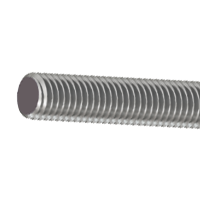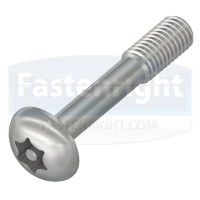High Temperature fasteners can be used across a wide range of applications. The automotive industry for example, and the oil and gas industries, need equipment that can work hard even in extreme temperatures. Consistency and durability is key, especially in things like vehicle component manufacture.
Often, fasteners are exposed to high temperatures, incredibly high temperatures at times, and these extremes demand fixings that can continue to perform within challenging environments. Years of new discoveries, tests and challenges have created advances within the manufacturing of fasteners, which now provides the industry with a wide range of materials, usually alloys, for use within these environments.
You may be wondering how heat could have an effect on fasteners as metals won’t melt until they reach temperatures that are exceptionally high. A more common problem is that heat may cause oxidation, which leads to corrosion of the fastener. Fasteners can also expand as they heat up, so expanding the fixing hole. When the fastener cools, it may become loos in the hole.
High Temperature Fasteners
The best materials for fasteners that can withstand high temperatures are often more specialised materials outside of the ones you may be able to name from memory. Here are some examples of suitable materials for high temperature fasteners.
Inconel is available in a vast array of different ‘types’, all of which hold unique traits or qualities that make them beneficial within a range of circumstances or applications.
It is an alloy, and each ‘type’ hosts different alloyed metals to create said ‘type’.
For example, Inconel 600 is a nickel and chromium alloy which is very resistant to a number of elements that are considered corrosive.
The vast majority of Inconel types are oxidation resistant and can retain their structural integrity in high temperatures. Inconel 601, which is similar to Inconel 600 but holds an addition of molybdenum, is able to perform exceptionally well even in extremely high temperatures.
Incoloy is a part of the same family of superalloys as Inconel – but they are different in their properties.
Incoloy 800 has good strength at higher temperatures and is resistant to a number of high-temperature corrosions including oxidation and carburisation.
Incoloy 9001 also had high strength and corrosion resistance at elevated temperatures – which is why the iron, nick and chromium alloy is used in aircraft and gas turbines.
Hastelloy is another alloy, consisting of nickel and molybdenum, that is available across a number of different grades.
It is the addition of molybdenum in this alloy that makes it harder and stronger at high temperatures, as well as a number of other exciting benefits.
Stainless Steel Fasteners For High Temperature Applications
There are a trio of stainless steels which can be used in fasteners for high temperature applications. These are 309, 310 and 630.
309 and 310 are higher in chromium and nickel than some other alternatives, whilst the cold-working and ageing at low temperatures for 630 make it ideal due to its hardness, strength and ductility.
Here at Fastenright, we are able to provide a range of fasteners in an array of materials that can be used in high temperature applications.




